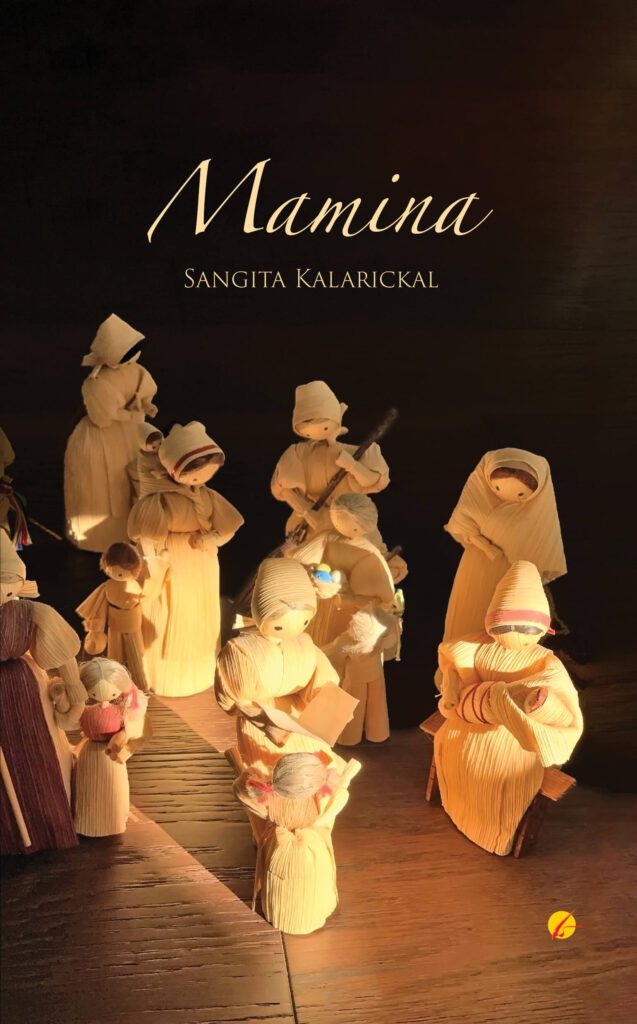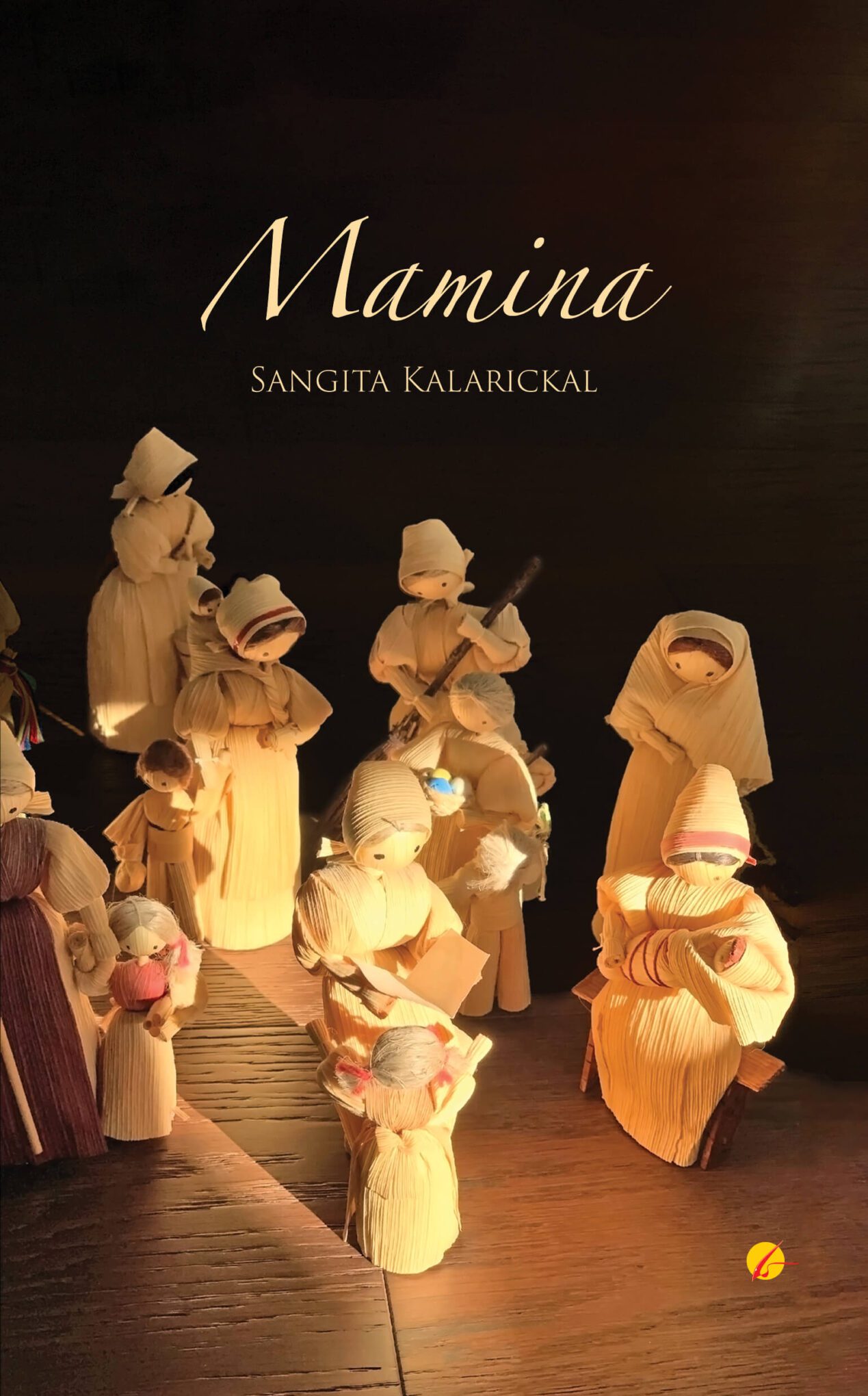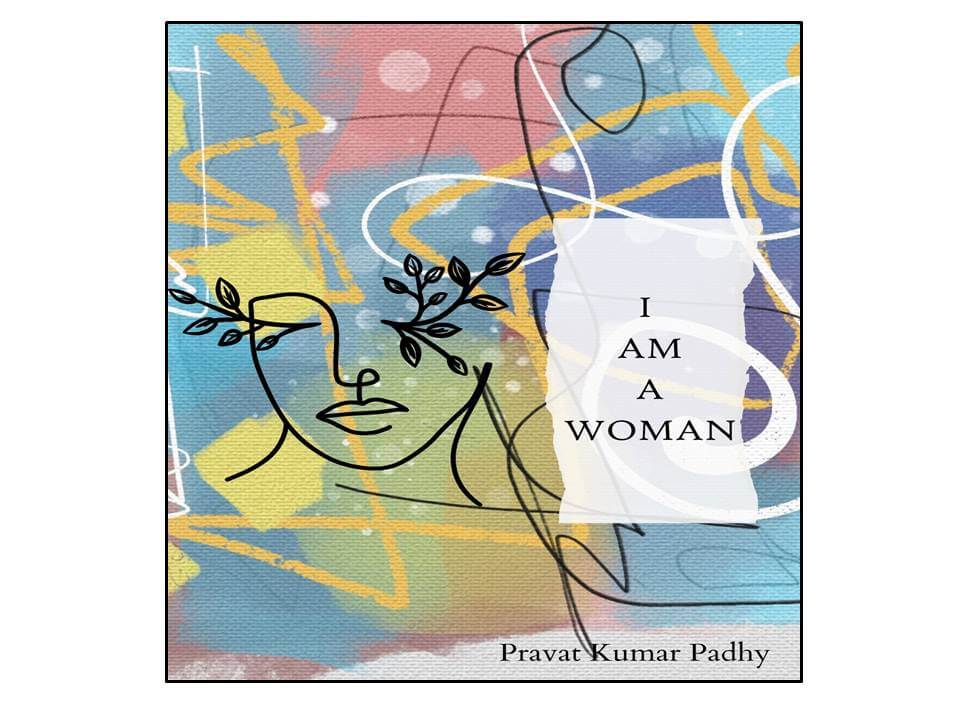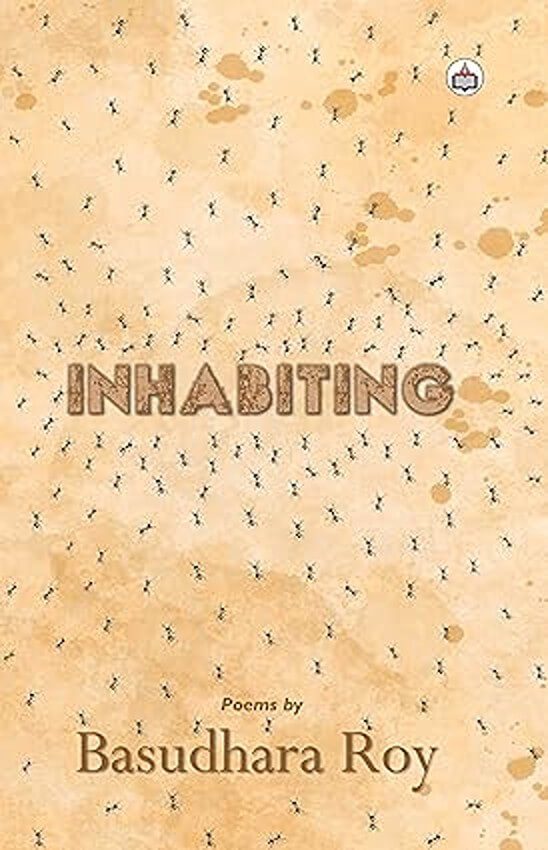Geetha reviews Sangita Kalarickal’s Mamina, a heartfelt chapbook, featuring poems and prose-poems about motherhood and love, exclusively for Different Truths.

Let me go from the outside to the inside.
Mamina, a slim chapbook, is a delight to hold and behold. On the cover are beige Slovakian husk dolls, Šupolky, the picture was caught in time by Pavol Krivosik, and set in a timeless tableau against a stark background of gold and black. The dolls are highlighted, in sharp contrast, in a play of light and dark. Just like us. Are we not frozen in time as well? Our memories hold much of us— they make us, they break us, they shape us, and, as we traverse through this journey of life, we try to hold onto them, or conversely, we vainly try to let go of them.
The emotions that this book evoked filled those gaps within me, those thin slices of space, that I did not even know existed. It shifted me through the years, back to my grandmother’s lap— to her warm hands, her big glass jars, and the goodies inside. To my mother’s hands softly sifting through my hair, and how that lightened the heaviness on my neck and shoulders. To my daughter’s birthday surprises — of crooked, uneven letters painted in bold crayon colours. Of her sweet smell, her hugs, and her chatter. Those and other dear memories that I carry within me, fill my heart and eyes, just as quietly.
This collage of poems and prose-poems has been cleverly stringed, with the first few pages devoted to the different shades, the different hues of being (and not being) a mother, and the second segment devoted to the child, the growing years, the first steps, the gradual progress through stages, like the unfurling of a bud to the flower, and the pride and sense of accomplishment the mother too gets with it.
I delighted in scribbling in the margins, on those blank pages, so thoughtfully provided, inviting us to a dialogue as the book started speaking with us. “This happened to me!” I scribbled away. “Oh! My daughter did that too!” I wrote of Sangita’s sense of balance and of the emotions that she so finely expressed (in words). And of my fascination for the brevity and beauty of her articulations.
Now, let’s delve a bit deeper, and even though it has been tempting to quote entire poems or sections from the book, I have refrained from doing so. (Direct quotes have been given under quotation marks.)
On Earth as the mother — easily an eternal symbol of Stoicism, patience, and tolerance:
"So many of your children
Turned on you.
Yet.
Yet you find a breath,
Warmth from deep within.
Yet you find strength
For another birth"
(Earth renews)A mother’s love for the child of her heart:
"Who said that the making of a mother is the privilege of the womb?
(Definitions)The ache for the unborn child. Of the regrets, and of the heart-warming companionship. How society needs to tap into its hidden reserves of compassion and empathy:

"All
YOUR
fault."
(Unborn)Memories of mother, her mother, and across the years of the daughter:
When a fragrance from the past awaits.
“Waits for it to be picked up decades later”
(Congee* memories).The squabbles, the hurts, the piques:
"Time soothed out razor-sharp memories into a cloud of happy oblivion"
(Grandma's tales)And then the child arrives:
"And of course, I cry"
(First minutes)The first blabber, the crawl, the first steps:
"Little paces with one knee and one foot"
"Rain puddles
Under the tiger lilies
Mud in her toenails."
(Zipping along a curve)On the child’s wonder, imagination, and trials, and on how along with them the mother grows
“In ten moments, you
sprout your wings
And in one fleeting moment,
You learn to fly.”
(Master of Time)Sangita has a keen mind and is sensitive to what matters in the large scheme of things. Each thought, each memory has been picked up carefully and curated into tiny tales of love. She seems to find peace in them amidst the turbulence of everyday mayhem.
"Let all bubble gently
Sieve through fine hours of the day
And through turbulent turmoil
Sip slowly. Slowly. Slowly."
(Cauldron of sanity)I loved the book for it speaks of an ache that never goes away. Of Memories that fill us and which then spill over — through our eyes, smiles, words, and habits. Memories, which get imprinted into our very souls and which get buried deep within us, with us.
Let me leave you inside the pages, with these beautiful lines,
"In your smiles,
I am home."
(Homecoming).*-congee: rice gruel
Cover image sourced by the reviewer





 By
By
 By
By

EXCELLENT